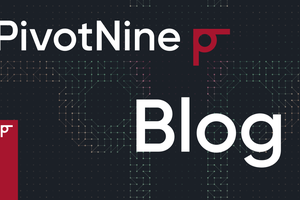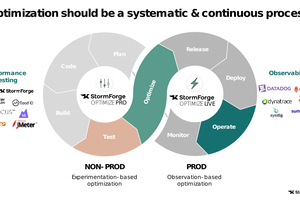HelloFresh Adopts Tecton to Improve Customer Experience With Machine Learning
Fresh food and meal kit delivery company HelloFresh has become an avid user of machine learning to improve its customers' experience. It had built up a substantial set of machine learning and prediction systems in-house, but this home-grown approach was reaching the limits of its capability.
HelloFresh went looking for new options, and recently chose Tecton's feature platform for real-time machine learning.
“Prior to Tecton, our features were generated independently with individual Spark pipelines. They were not built for sharing, they were often not cataloged, and we lacked the ability to serve features for real time inference,” said Benjamin Bertincourt, Senior Manager ML Engineering at HelloFresh SE.

HelloFresh was looking to make its use of machine learning more standardized at scale. A feature store was a key components of HelloFresh's planned approach.
In machine learning systems features are types of variables used as inputs for predictive models such as those for fraud detection or recommendation engines. Features can be things like how much a customer has purchased in the last 30 days, the current price of an item, whether the item is in stock, and many more.
Without a feature store, up-to-date information has to be fetched from raw data systems and processed before it can be used, which slows everything down. Features can be abstracted from the raw data, providing a more consistent approach across different systems and easier sharing of high-quality features between teams.
“We are going through the process of switching our main production models to be fed from the Tecton feature store, which will enable us to reuse features built for business functions like Marketing, Procurement or Supply Chain Management for a variety of new models,” said Bertincourt. “Currently one team is using a generalized embeddings model which uses features served by Tecton and are aiming to make embeddings accessible and usable for Machine Learning models. This is providing the groundwork to roll-out forecasting and personalization models in future.”
A feature store can also provide important governance information such as which version of features was used to make a specific prediction, vital for debugging models and also for complying with regulations in some industries. Good governance tools are particularly important for online systems as making good predictions requires current, high-quality data not static collections of old, stale data of questionable origin.
“We focus on accumulating data to improve the interaction of our customers with the product and use our customers’ data carefully,” says Bertincourt. “Our data collection is fully focused on helping model our customer experience rather than collecting mass amounts of data just because we can.”
With the increasing scrutiny of companies' data practices, this careful use of data should be a priority for every data science team. Tools like Tecton will become even more necessary as teams build out highly automated inferencing systems. Customers want to be confident that companies are using only data that has been collected ethically and for their benefit. A feature store like Tecton is one way companies can demonstrate to customers and regulators that machine learning is being used responsibly while also improving the customer experience.


